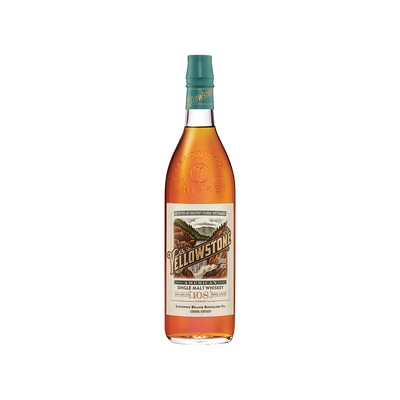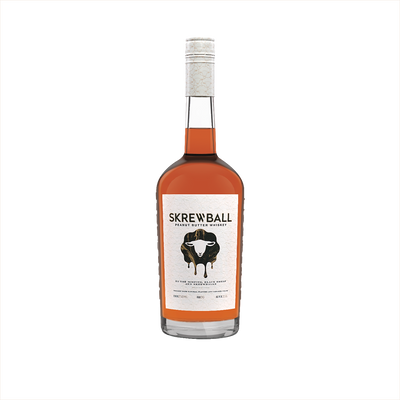Flavored Whiskey
What is Flavored Whiskey?
Flavored whiskey represents a specific category within Other Whiskey where distillers infuse traditional whiskey with natural or artificial flavors after the aging process. These spirits maintain whiskey as their base but incorporate additional flavoring agents like vanilla, cinnamon, apple, honey, or maple to create distinctly different taste profiles. What defines flavored whiskey is that it must contain at least 30% straight whiskey by volume, with the remaining portion consisting of flavoring agents and sometimes additional neutral spirits or water.
Learn More About Flavored Whiskey
What makes Flavored Whiskey unique?
Flavored whiskey stands apart from traditional whiskeys by incorporating natural or artificial flavoring agents after distillation, creating profiles that range from vanilla and honey to apple, cinnamon, and even bacon. While standard whiskeys derive their character solely from grain recipes, distillation techniques, and barrel aging, flavored varieties intentionally break from purist traditions to offer approachable, often sweeter expressions that appeal to newer whiskey drinkers. This category occupies a distinct space between traditional spirits and liqueurs, maintaining whiskey's base alcohol strength while adding bold flavor elements that would never occur naturally through conventional production methods.
How is Flavored Whiskey made?
Flavored whiskey starts with a base of straight whiskey that gets infused with natural or artificial flavors after the distillation and aging process is complete. Distillers add everything from honey and cinnamon to apple and cherry flavoring directly to the finished whiskey, then blend and filter the mixture to achieve the desired taste profile. Some producers use real fruit extracts or spices during a secondary maceration process, while others rely on concentrated flavor compounds to create consistent results across large batches.
How do you drink Flavored Whiskey?
Flavored whiskeys shine brightest in mixed drinks and cocktails, where their sweet profiles complement citrus, ginger beer, or creamy mixers in drinks like whiskey sours, mules, and creamy winter warmers. While purists might sip them neat or on the rocks to appreciate the flavor complexity, most people enjoy them as shots or in casual cocktails at parties and social gatherings. These spirits work particularly well in fall and winter cocktails when their warming spices, vanilla, or fruit notes match the cozy seasonal mood, making them perfect for holiday entertaining and cold-weather sipping.
How do I choose good Flavored Whiskey?
Start with the base whiskey quality—look for brands that use genuine bourbon or rye as their foundation rather than neutral grain spirits, since you'll still taste that underlying character beneath the flavoring. Consider your intended use: lighter fruit flavors like peach or apple work beautifully in summer cocktails and punches, while bolder options like cinnamon or maple shine in fall-inspired drinks or can stand up to mixing with ginger beer or cola. Read the ingredient list when possible—natural flavors and real extracts typically deliver more authentic taste than artificial additives, and remember that the best flavored whiskeys should complement rather than mask the whiskey's inherent smokiness and warmth.
Nutritional Information
Typical Calorie Range per Ounce: 70-110 calories
Typical Carbohydrate Range per Ounce: 3-11 grams
Typical Sugar Range per Ounce: 2-10 grams
Typically Gluten Free: No
Flavored whiskeys pack significantly more calories and carbohydrates than their straight counterparts due to added sugars, natural flavors, and sweeteners. The wide ranges reflect the diversity of products on the market - from lightly flavored expressions to dessert-style liqueurs that blur the line between whiskey and cordial.
Most flavored whiskeys contain gluten since they're typically made from grain-based whiskeys. While the distillation process removes most gluten proteins, flavoring agents and additives may reintroduce gluten-containing ingredients. Always check the specific product's detailed nutritional information and allergen statements to confirm gluten-free status, especially if you have celiac disease or gluten sensitivity.
Scrolled this far? Your reward? Flavored Whiskey Trivia!
- The first commercially successful flavored whiskey wasn't honey or cinnamon – it was pickle juice. In 1999, a bar in Minneapolis started infusing whiskey with pickle brine as a dare, and the combination became so popular that distilleries took notice. This crazy experiment helped pave the way for today's explosion of flavored whiskeys.
- Jack Daniel's Tennessee Fire contains actual cinnamon bark extract, but here's the kicker: the cinnamon comes from trees that are at least 25 years old. Younger cinnamon bark produces a harsh, medicinal flavor, while aged bark develops the smooth, sweet heat that makes the whiskey so addictive. Most people assume it's artificial flavoring.
- Flavored whiskey sales actually saved several small distilleries during the 2008 recession. When premium whiskey sales plummeted, creative distillers started experimenting with fruit and spice infusions using their existing stock. These "desperate" experiments became bestsellers and kept many craft operations alive long enough to rebuild their premium lines.
- The maple syrup used in maple-flavored whiskeys often comes from the same Vermont farms that supply high-end restaurants – but there's a secret process involved. The syrup gets concentrated and dehydrated into crystals before being added to the whiskey, preventing the sugars from fermenting and turning the entire batch sour. Fresh maple syrup would ruin a whole barrel.
- Crown Royal Apple wasn't actually Crown Royal's first flavored attempt – they secretly test-marketed a bacon-flavored version in three Canadian provinces in 2010. The bacon whiskey developed such a cult following that bottles now sell for over $300 on the secondary market, even though it was discontinued after just six months due to "production complications."
Higher-proof spirits can be intense. Mix carefully, taste thoughtfully, and enjoy responsibly.
Gift message (optional)


